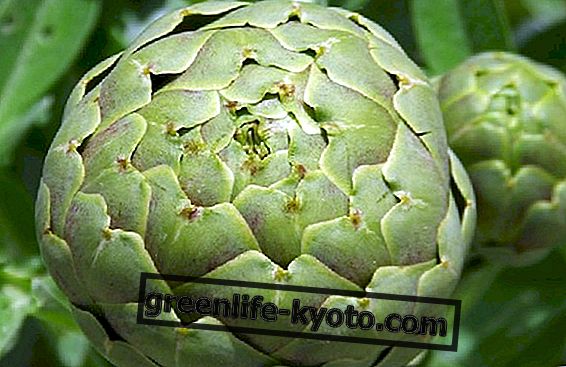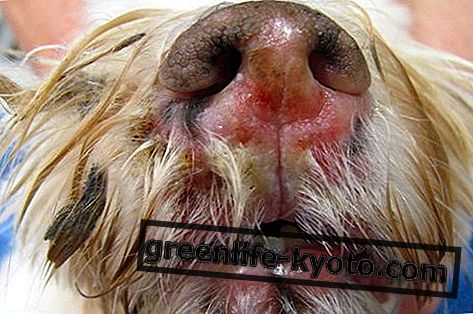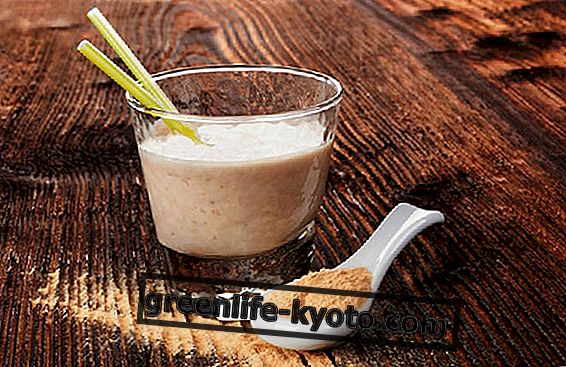Menthol, extracted from the essential oil of mint, is useful in the treatment of diseases affecting the respiratory and digestive system. Let's find out better.
>
>
>
>

What is menthol
Menthol is an alcohol extracted from Mentha sp. Isolated looks like a potentially irritating white solid.
Inside the plant's phytocomplex (ie considering all the active ingredients contained in the extract and in the essential oil of the mint plant), menthol is useful as a fragrance, as well as a drug for digestive and respiratory problems .
Where is the menthol
Menthol is contained in the essential oil of Mint sp . in quantities between 30-40%; in addition to menthol, mint essential oil also contains menton, mentofuran, 1-8 cineol (chemically belongs to the group of oxides and also takes the name of eucalyptol, present, as the name implies, also in the eucalyptus, plant indicated for respiratory problems), limonene and d-pulegone.
The plants belonging to the Mentha sp. they are many and distributed all over the world. They are aromatic herbs that are propagated by stolons (creeping little stems transformed with reserve function); the leaves are sessile or with petiole depending on the species. Each species has numerous varieties, strains or chemotypes that produce essential oils that differ widely in chemical composition.
Let's clarify what is meant by chemotype, since the concept in aromatherapy is fundamental. As mentioned, the phytocomplex of the essential oil of the mint plant is composed of many molecules, the concentration of which varies according to environmental factors.
Therefore a same kind of mint that grows in full sun, or a little in the shade; or even growing at 500 m asl or 30 m asl, etc., it will have different concentrations of active ingredients. The essential mint oils on the market can be distinguished by the relative content of menthol and carvone.
You can learn more about the properties, use and contraindications of mint essential oil

Properties of menthol
For internal use, menthol is present in many products to relieve sore throat and respiratory tract congestion .
Mint essential oil is widely used as a flavoring, antiseptic and local anesthetic agent in products for colds, coughs and other preparations (candies, syrups, smears, etc.).
Furthermore, menthol is useful for reducing spasms and pains in the stomach ; it has an eupeptic action, which means it improves digestion ; and carminative (reduces the air in the belly); moreover, it has a stimulating action on the bile secretion by the gallbladder .
Mint oil capsules, with enteric coating, have been studied to overcome the stomach barrier and reach the colon where they can act to relieve spasms due to irritable bowel syndrome .
Finally, it has an antibacterial action, a characteristic common to all essential oils.
For external use the menthol plays an important refreshing and tonic action on the muscles, so much so that it is present in creams and ointments useful in promoting circulation and in giving freshness to tired and swollen legs.
Menthol is present in many formulations such as: ointments and creams, capsules, syrups and throat sprays; it is also present in food preparations such as chewing gum, sweets, sweets and chocolates and in alcoholic and non-alcoholic beverages, sweets, cheeses, sauces and packaged fruit, where it is used to flavor. Finally, the use of menthol in the perfume industry is no less important.
Mint is also a tonic, therefore, its use at high dosages in the evening hours, especially as essential oil, and therefore as menthol, is not recommended, as it can lead to hyperexcitability.
Contraindications
Menthol is contraindicated in the case of gastroesophageal reflux disease, as it reduces the tone of the lower esophageal sphincter (LES); in people with severe liver problems; for those suffering from occlusions at the level of the biliary tract, because, as mentioned above, it stimulates bile secretion; in pregnancy and in pediatrics.
Furthermore, the essential oil of Mentha sp. it is not recommended in subjects with favism, as menthol is metabolized by the glucose-6-phosphate dehydrogenase enzyme system, genetically deficient in these subjects.
The administration of high doses of mint essential oil can cause serious kidney problems or severe kidney failure.
The lethal dose in humans is estimated at around 3-8 g of menthol.













